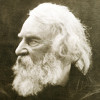“ An active principle can never be founded on an inactive ”
David Hume, A Treatise of Human Nature (1738). copy citation
| Author | David Hume |
|---|---|
| Source | A Treatise of Human Nature |
| Topic | principles |
| Date | 1738 |
| Language | English |
| Reference | |
| Note | |
| Weblink | http://www.gutenberg.org/files/4705/4705-h/4705-h.htm |
Context
“nor is there any other means of evading it, than by denying that principle, on which it is founded. As long as it is allowed, that reason has no influence on our passions and action, it is in vain to pretend, that morality is discovered only by a deduction of reason. An active principle can never be founded on an inactive; and if reason be inactive in itself, it must remain so in all its shapes and appearances, whether it exerts itself in natural or moral subjects, whether it considers the powers of external bodies, or the actions of rational beings.”
source


